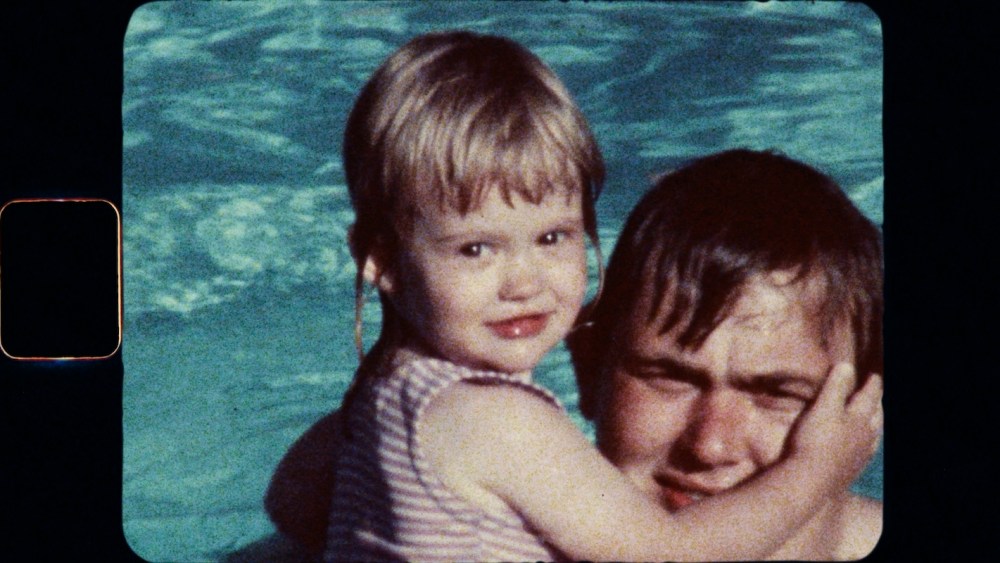‘John Candy: I Like Me’ Review: Overly Affectionate Celebrity Homage
“John Candy: I Like Me” is the kind of glowing celebrity tribute you expect to get at their funeral, not all these years after their death (it opens with the Dan Aykroyd’s eloquent eulogy for his friend, and closes with the one Catherine O’Hara gave). But in the three decades since that big, lovable star’s passing, the affection his friends and family held for Candy has only deepened, to the extent that Bill Murray jokes “I wish I had more bad things to say about him” in the film’s first interview.
Kicking off the 50th anniversary edition of the Toronto Film Festival (in the nearest big city to Candy’s native Newmarket, Ontario), the made-for-Amazon documentary doesn’t need dirt, but it could’ve used more drama. Director Colin Hanks collects fond remembrances from an impressive roster of A-listers, including Steve Martin, Martin Short, Macaulay Culkin, director Chris Columbus, “SCTV” co-founder Andrew Alexander, Second City Toronto colleagues O’Hara and Eugene Levy, as well as Hanks’ dad (and Candy’s “Splash” co-star) Tom.
None of them has a bad thing to say about Candy, a born people pleaser and gifted improv comic with the signature giggle and showbiz’s most contagious smile. You know how seeing someone else yawn makes it impossible to resist yawning yourself? Candy’s grin had the same effect on audiences, making him the secret weapon in nearly 40 features. But if one were looking for something critical to say about Candy, it would make sense to start with that filmography, since you can count his good movies on a single hand.
“Only the Lonely” ranks up there (but is barely featured here). The best is undeniably “Planes, Trains and Automobiles,” the John Hughes classic that gives Hanks’ doc its affirmational subtitle. In it, Candy plays one of the most irritating screen characters of all time — not to audiences, but as travel companion to Steve Martin’s easily annoyed Chicago businessman.
Candy appeared in no fewer than seven movies written or directed by Hughes. Culkin incorrectly says nine, but is otherwise right to suggest that no one understood his “Home Alone” co-star better than Hughes. The director tapped Candy’s avuncular appeal better than anyone else, even going so far as to upend it in “Uncle Buck” (a movie specifically written for the actor).
The movie delves into Candy’s home life and easily identifies one big answer: His father, Sidney, died of a massive heart attack on John’s fifth birthday. He was only 35 years old. That meant not only growing up without a dad, but also feeling like he too would die young — which unfortunately proved true. John was just 43 when a heart attack took his life. Colin Hanks build the entire documentary around that tragedy, establishing 1994 as the year he died and literally rewinding the clock each time he jumps back to an earlier stage in Candy’s life.
Apart from a few childhood friends, his wife Rosemary Hobor knew him the longest, but shares generalizations more than revealing anecdotes. (We learn that Candy started to experience crippling self-doubt around 1991.) His two adult kids, Christopher and Jennifer, look uncannily like their father. In their faces, we get the answer to the most obvious question: What if John Candy had lived on?
Would he have eventually made a movie like “Punch Drunk Love” or “The Truman Show,” projects which force critics to reevaluate low-brow comic talents? Unless they were born after 1994 (in which case, the movie seems uniquely unhelpful), audiences don’t need a documentary to remind them just how much Candy could elevate a bad movie — and boy did he make a lot of them. “You’ve been in more turkeys than a stuffing mix,” quotes one interviewer.
It would be interesting to know why Candy wasn’t more selective, but at least Hanks recognizes something fundamental when it comes evaluating to funny actors: Their work needn’t be judged by how good their films were, but by the strength of their characters and whether certain scenes remain imprinted in our memories all these years later. With the help of Candy’s co-stars, he identifies how early “SCTV” characters resurfaced in his acting career (film clips are of variable quality, but strangely look no better than a DVD transfer).
Candy’s “National Lampoon’s Vacation” security guard was a variation on Paul Fistinyourface, his “Home Alone” cameo (recorded in just one day) is closely related to the Schmenge Brothers (a louche duo he’d hatched with Levy), and the actor’s scheming “Splash” character echoed Candy’s larger-than-life Johnny Toronto — a persona he played in real life, too. From an early age, Candy acted like he’d run his hometown one day, driving in limos and treating his friends to lunch.
The word “generous” comes up a lot in interviews (as does “vulnerability”), reinforcing that the man was a mensch. While shooting “Wagons East” in Durango, he donated money to a local children’s hospital. Instead of stealing scenes, he let his co-stars shine. Even when cameras weren’t rolling, Candy could be found “lookin’ out for the kid,” as Culkin puts it. The former child star offers one of the film’s most insightful interviews, speaking volumes about both of them.
“I Like Me” starts to feel a little too hagiographic after a while, relying heavily on music to amplify the tragedy. Candy was not without his demons, but Hanks prefers to treat him as a big kid trapped in an adult’s body. And even though the movie suggests there has never been anyone like him before or since, that’s not entirely true.
Also screening on opening night of Toronto is Matt Johnson’s hometown comedy stunt “Nirvanna the Band the Show the Movie.” Watching it, you can see that Candy’s legend continues — and not just in his kids, but also in generations of younger comics. Hanks’ doc mostly shows how great it must have been to know John Candy when he was alive, although Conan O’Brien does a nice job of contextualizing how he inspired others. Amid all that adulation, Hanks might have scrapped the title “I Like Me” and called the movie “Everybody Likes Candy” instead.

